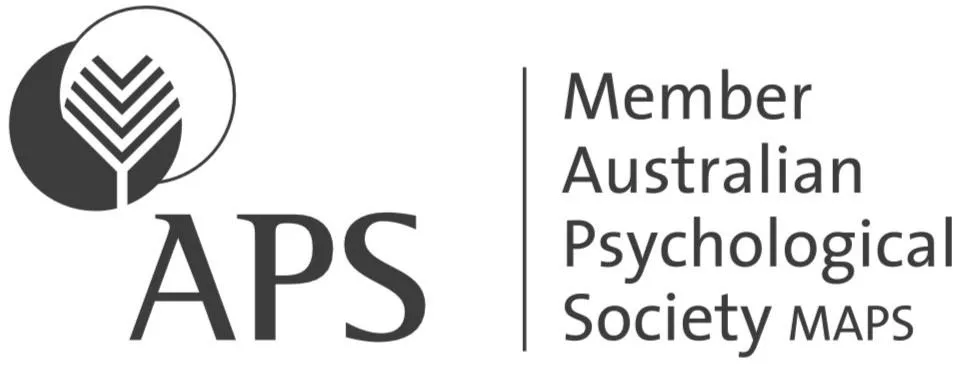Book a session with Kerry
Please choose a date and time below that suits you for your appointment.
After receiving your payment you will be sent an email with the Zoom link and a receipt.

Kerry Maloney
HEAD COUNSELLOR
Kerry offers a warm, energetic and positive approach to therapy. As a registered Psychologist and a full M
r Australia and New Zealand, including many rural Australia regions, and her sessions are largely run via Zoom to ensureember of the Australian Psychological Society (MAPS), Kerry has over 30 years of experience working with adults, couples and adolescents to solve a broad range of issues which can arise during the separation and divorce process: anxiety, stress, grief, relationship & parenting issues, depression, communication strategies, self-esteem, adjustment and resilience building.
From her diverse work globally, Kerry also has direct experience in understanding the impact of culture on relationships and families. She uses a variety of evidenced-based treatment approaches - Cognitive-Behavioural (CBT), Mindfulness and Acceptance & Commitment Therapy (ACT).
Kerry offers a non-judgmental, safe place to share thoughts and feelings while offering the guidance, compassion and support to make robust choices, navigate challenges and develop fresh coping strategies.
As a divorced mother-of-two, she is passionate about resolving conflict and achieving amicable outcomes for her individual clients and their families. Through guided facilitation to heal from the pain of separation & divorce, she thrives on helping both men and women reclaim their sense of self and create a brighter and more fulfilling future.

PSYCHOLOGIST
Sherry is a registered Psychologist, educator, and mother of three who is passionately dedicated to uplifting the mental health and well-being of her clients at every stage of life. She excels at helping you develop an effective tool kit of strategies and coping skills, to help you through your life challenges, improve your communication skills and enhance family relationships.
Sherry particularly specialises in:
Child anxiety, building resilience, emotional regulation
Teens & Adult support
Family Relationships
Parenting help
Peri/Menopause support
Peri and Post Natal support
Grief/Loss

COUNSELLOR AND COACH
Susan is a lawyer who majored in psychology, counselling and coaching. She has worked for over 30 years with clients who are considering whether to stay or go, have already separated or are now divorced. She emotially supports, educates and empowers her clients to consider all the options and develop a plan going forward, which best supports their emotional, parenting, financial and post divorce needs. With male and female clients, located throughout Australia - rurally, regionally and in city areas, Susan offers zoom/online appointments. If you cannot find a time suitable, please email us at [email protected] to help arrange an out of hours appointment with Susan.
Susan specialises in Separation and Divorce Counselling and Coaching, assisting her clients with:
Separation & Divorce Counselling and Coaching
Parenting Assistance
Co-Parenting Support
Preparing Parenting Plans
Regaining confidence and rebuilding lives after divorce
Life Coaching - career, financial and confidence
Questions about our
Services?
Medicare rebate or private medical insurance claim for psychological services?
Most clients prefer to book directly with with our counsellors. No referral is required to access this counselling service.
During the first session, you can discuss the benefits of seeking a Mental Health Care Plan from your GP should you wish to pursue this path moving forward and you are booking with a registered psychologist. If you require a Mental Health Care Plan (MHCP) you will need to make a long appointment with your GP and they will make an assessment about whether you are eligible.
All of our registered psychologists are registered with Medicare and you will need a referral from a GP if you wish to claim Medicare rebates. Under the Better Access program you can receive a partial rebate for up to 10 individual sessions in a calendar year.
All our psychologists are registered with private health insurance providers in Australia. If you have private health insurance, you may be eligible to claim rebates for psychological sessions. The level of cover and any applicable waiting periods vary between providers and depends on your extras cover policy.
To find out if you are eligible and/or how much funding you are entitled to claim for psychological sessions, please contact your private health insurance.
Where applicable, some of our psychologists also see clients who are self-managed or plan-managed through NDIS at the current rate for NDIS.
Cancellation or missed sessions policy
Given the nature of our support services, last minute cancellations are costly, and it means that other clients may miss out on receiving the required support. For cancellations within 48 hours of the scheduled appointment there is a $65 part fee payment. For less than 24 hours cancellation notice or a non-show, the full session fee will need to be charged. These fees are refunded however if the session can be filled at the last minute.
How are your counselling and coaching sessions held?
We know our clients are time poor. For your convenience, all our counselling or coaching sessions are now available online via Zoom.
You can book your appointment online via this website.
Zoom allows us to connect with you via video and audio. It just requires you to click on a link to join. You can sign up to Zoom to create a FREE account and download the Zoom Client for Meetings. Zoom does require internet connections.
After you book you will be sent a reminder about the booking and emailed a link to connect at the booked time. You are also likely to be sent a client information form to complete prior to your initial consultation to enable our Counsellors and Coaches to be better prepared for your first meeting.
If you are unable to make any of the dates available, please email us to see if we can accommodate an alternate time for you: [email protected]
If you live in Brisbane or the Gold Coast, Queensland, we are available for face to face consultations. Please email us at [email protected] if you would like to arrange an in person appointment.

Webinars - how they are received, transcripts and worksheets
Our clients have requested webinars and programs for years that allow them to access excellent support and guidance and a toolkit they can use to move forward. Many of our clients are time poor so these webinars give them the chance to get the support and resources in their time. The webinars can be purchased on line. The link, transcript and workbooks/worksheets and videos (where applicable)are then sent with the email. Sign up to our email today to receive updates on all our webinars, programs and resources.

Catch up on our latest blogs

Telling your Partner you want a Separation or Divorce
Regardless of who has made the decision or how your relationship has been to date, telling your partner that you want a separation or divorce is likely to be one of the most difficult, painful and memorable conversations you are likely to ever have. It is often a conversation that both parties remember clearly for the rest of their lives, so take some small steps to get it right.
It is important to realise that the way in which you discuss this may set the tone for your future discussions and potentially increase OR decrease your chance of positively negotiating your future conversations regarding financials, family and the next phase of your lives.
TIPS
Planning the discussion
• Have you considered having counselling together or at least personally speaking with a counsellor, psychologist, separation coach to help you consider your emotions, options and plans. Family Counselling Support Network can assist. www.familycounsellingsupportnetwork.com. Speaking with your GP is often also highly recommended to ensure there are no medical reasons contributing to the way you are feeling.
• Make sure you are certain of your final decision before you break the news to your partner as it is very stressful and often emotionally difficult to come back from this type of disclosure if you change your mind.
• Consider what will be the best day, time and conditions to have this discussion so it is as amicable, respectful and calm as possible under the difficult circumstances. Ideally it should be done face to face (not via a text, a note, or via a third party) and when no one else is home, especially children. You may choose to go to a neutral place such as coffee in a park where you aren’t distracted or conscious of being the object of attention. Most importantly, make sure that your intention is not blurted out in the middle of heated discussions and avoid late at night or on a day which corresponds with important events such as celebrations or family holidays.
• Consider how will you remain safe throughout this discussion and afterwards? Do you need to consider having the discussion in conjunction with a counsellor? If you are leaving an abusive or violent partner, do you need a safe exit plan, a restraining order or emergency accommodation assistance? In an emergency call police 000.
• Have you considered your partner’s reaction, the likely questions that you will be asked and how you will respond to them? Are they likely to be surprised? Deeply emotional? Aggressive? Some people consider marriage a lifelong commitment and may be really surprised by your announcement. Often people are in denial and do not seem to absorb what is being said and perhaps the finality of your decision. Watch for the possible breadth of reactions, acknowledge their feelings and show empathy.
• Who is staying in the home and who is potentially leaving, and where the children and pets will immediately go, are likely to be the first issues raised. It is important to have thought through these issues so that solutions are more easily explored.
Planning the discussion
• When delivering your decision to separate or divorce, the key is to be kind, direct and not highly emotional. Examples of how you might raise it include, “I am unhappy and would like to live apart for six months. During that time, I am open to having more counselling to see if we can make it work.” Or “We have tried counselling but unfortunately I am still not happy and I would like to move towards a more permanent step to separate” or “I have been unhappy in our relationship for a long time and I would like to see if being apart improves things for us all.”
• Then deliver the terms, for example, “I would like you to live at your parents for a few weeks and I can remain here with the children until we work out the next steps”, or “I am going to visit my parents for the week to give you time and space to move out,” or perhaps if you are amicable and it is safe, you could suggest, “You are welcome to stay in the other bedroom until we sort out what we are going to do next.”
• Regardless of how the other person reacts, try not to get highly defensive, blaming and remember to acknowledge their emotions. Try to remain calm and supportive and continue to state your position - “I am sorry, I know this isn’t what you want to hear but we have tried our best, and I can’t do this anymore and I want to separate."
• Give your partner time and space to process what you have said. Don’t immediately proceed with details of what you are proposing in terms of parental and financial settlements, but it is a good time to suggest you want to work with them to ensure you sort things out as amicably as possible as you move forward.
• Try to calmly agree together on how and when to tell the children and other family members and friends, allowing a respectful period of time to digest the details.



We are committed to protecting your personal information and respecting your privacy. This website uses cookies to analyze website traffic and optimise your website experience. By accepting our use of cookies, your data will be aggregated with all other user data.
DISCLAIMER: The material contained on this website is for general educational and information purposes only and is not a substitute for professional legal, financial, medical or psychological advice or care. While every care has been taken in the information provided, no legal responsibility or liability is accepted, warranted or implied by the authors or Family Counselling Support Network and any liability is hereby expressly disclaimed. For specific advice please contact us at [email protected]. All information contained on the website remains the intellectual property of Family Counselling Support Network and is for your personal educational use only. The information must not be reproduced or distributed without the express permission of Family Counselling Support Network.
We are committed to providing an inclusive and accessible environment where people and communities of all identities and backgrounds are accepted, safe and celebrated.
Privacy Policy | Terms and Conditions
